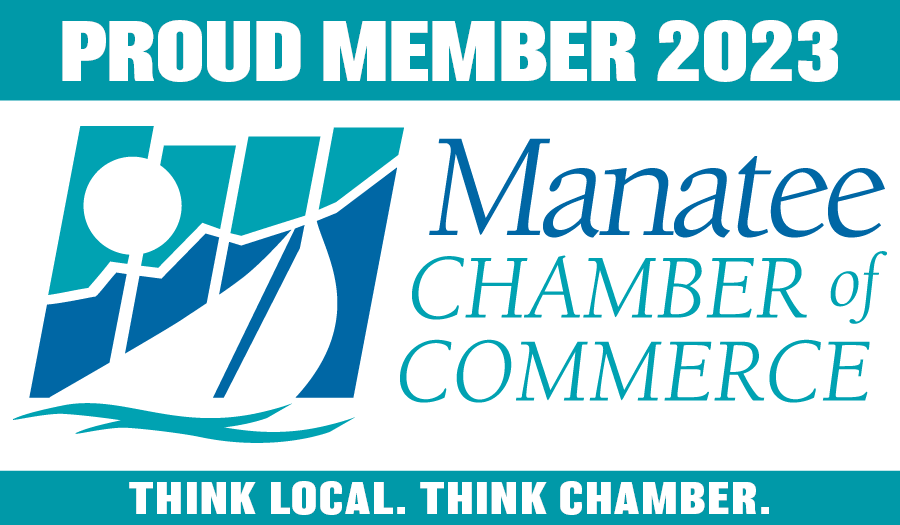Catastrophic Injuries
florida catastrophic personal injury lawyers
Florida is not immune to catastrophic injuries. Understanding these injuries, their causes, and how to navigate the aftermath with the help of a personal injury attorney is crucial for victims and their families. A catastrophic injury lawyer from Luhrsen Goldberg can be a useful guide for victims seeking justice.
Common Causes of Catastrophic Injuries in Florida
Florida’s diverse landscape, bustling urban areas, and attractive recreational options come with risks. Several factors converge to give rise to catastrophic injuries:
- Motor Vehicle Accidents: Florida’s extensive network of highways, boulevards, and local roads witness countless accidents daily. Given the state’s attraction as a tourist destination, unfamiliarity with the roads and ever-increasing traffic volumes contribute to the high incidence of mishaps. Some of these incidents escalate to the point of causing severe, life-altering injuries, emphasizing the need for vigilance and safe driving practices.
- Workplace Accidents: Florida’s thriving construction industry, manufacturing units, and diverse work settings present specific challenges. Construction sites, often laden with heavy machinery and elevated work platforms, pose significant risks. With their intricate machinery, factories can become places of unforeseen accidents if safety protocols are not meticulously followed. These environments underscore the importance of regular safety training and adherence to regulations.
- Slip and Fall: While seemingly innocuous, slip and fall accidents can lead to debilitating injuries. Florida’s frequent rains and architectural styles that favor tile and stone flooring can make for slippery conditions. Uneven sidewalks, unexpected obstacles, and poorly maintained public spaces further heighten the risks. It reminds businesses and homeowners alike to prioritize safety in design and maintenance.
- Recreational Activities: Florida’s coastline and favorable climate make it a hotspot for water-based and outdoor recreational activities. From boating and jet-skiing to parasailing and diving, the options are numerous. While these activities provide thrill and relaxation, they are not devoid of risks. Equipment malfunction, inadequate safety measures, or even a momentary lapse in judgment can sometimes culminate in grave accidents.
- Medical Malpractice: Trusting healthcare professionals with one’s health is a norm, but things sometimes go awry. Surgical errors can have dire consequences, from a lapse in technique or misjudgment. Misdiagnoses can lead to treatments that are unnecessary or harmful. And even established treatments can sometimes fail, causing more harm than good. Such incidents highlight the importance of second opinions, patient education, and rigorous medical oversight.
In understanding these causes, Florida’s residents and visitors can take steps toward prevention and preparedness.
Overview of Catastrophic Injuries
Catastrophic injuries are severe by nature, often leading to lasting, profound impacts on a person’s life. Such injuries not only affect the physical well-being of an individual but can also have profound psychological repercussions.
Traumatic Brain Injury (TBI)
Regarded as one of the most serious injuries, a TBI affects the brain, the control center of our body. This injury can occur from sudden, violent head hits or objects penetrating the skull. The consequences can vary from mild concussions to profound cognitive, behavioral, and physical disabilities. TBIs can impair memory, alter personality, and affect basic bodily functions.
Amputation Injuries
A limb’s traumatic loss or surgical removal is life-altering. Whether resulting from severe accidents involving machinery, traffic collisions, or due to medical conditions where amputation becomes a necessity, such injuries require significant adjustments. Beyond the physical loss, amputees often face emotional and psychological challenges, including phantom limb sensations and body image issues.
Paralysis Injuries
Paralysis is the loss of muscle function in a body part. This can be a result of damage to the spinal cord or specific regions of the brain. Depending on the injury’s location and severity, paralysis may affect only a limb (like paraplegia) or multiple limbs (quadriplegia). The ramifications extend beyond loss of movement; they can also influence bodily sensations and autonomic functions.
Organ Injuries
Our internal organs, protected by the rib cage and layers of muscle and skin, are still vulnerable to trauma. Forceful impacts, stabbings, or gunshot wounds can cause significant damage. An injured organ can lead to internal bleeding, reduced or lost function, and, if not treated promptly, can be fatal.
Burn Injuries
Severe burns can have enduring consequences beyond the immediate pain. Depending on the burn’s depth and extent, victims may suffer from infections, scarring, disfigurement, and damage to underlying tissues like muscles, tendons, and bones. The healing process is often prolonged, requiring specialized medical care, and the emotional trauma can be immense.
Spinal Cord Injuries
The spinal cord is a bundle of nerves that relay messages between the brain and the rest of the body. Damage to this crucial pathway can disrupt this communication. Depending on the injury’s location, victims might experience partial or complete paralysis, loss of sensation, and difficulty controlling bodily functions.
Awareness of the depth and breadth of these injuries helps understand the profound challenges that victims face, emphasizing the importance of prevention, timely medical intervention, and comprehensive rehabilitation.
Immediate Actions to Take After a Catastrophic Injury
Experiencing a catastrophic injury is a profoundly overwhelming and life-altering event. It’s essential to know the right steps to ensure your safety, rights, and potential for recovery:
- Seek Medical Attention: Above everything else, your health and well-being should take precedence. Even if injuries seem minor, underlying issues may not be immediately apparent. Swift medical intervention not only safeguards against possible complications but can also play a crucial role in recovery.
- Document Everything: Memories might become foggy in the days and weeks following the incident. Start by documenting every detail you remember about the event. Secure all medical records, bills, and any other relevant paperwork. Gather testimonies from witnesses if possible, as their accounts can play a pivotal role if legal actions become necessary.
- Contact a Catastrophic Injury Attorney: Catastrophic injuries often come with complex legalities. An experienced attorney can help navigate these complexities. They can offer guidance on understanding your rights, potential compensation, and the broader implications of your situation.
The actions taken immediately after a catastrophic injury are crucial. It’s about safeguarding your health, being well-informed, and securing your legal rights.
Potential Pitfalls: Mistakes to Steer Clear Of
By being aware of potential pitfalls, you can make informed decisions prioritizing your health, rights, and long-term well-being.
Delaying Medical Treatment
It’s not uncommon for the shock of an accident to mask pain or injury symptoms. However, postponing medical attention can aggravate certain conditions and affect future claims, as the injuries might be considered serious.
Speaking to Insurance Companies Without Representation
In their bid to protect their interests, insurance companies might approach you for statements or settlements. They might offer substantial settlements immediately post-incident but may not cover long-term needs. Without legal counsel, you risk settling for less than you deserve.
Not Following Medical Advice
Recovery from catastrophic injuries often requires rigorous and consistent medical intervention and rehabilitation. Skipping treatments, medications, or therapy sessions can slow recovery and be cited as non-compliance, affecting claim settlements.
Posting About the Incident on Social Media
In the digital age, it’s tempting to share experiences online, seeking support from friends and the community. However, insurance companies and opposing attorneys can monitor your online activities. Comments, photos, or even location check-ins can be misconstrued and used against you in legal proceedings.
Building a Solid Case: Proving Liability in Catastrophic Injury Claims
In the aftermath of a catastrophic injury, proving liability is a cornerstone of securing just compensation. The process is multifaceted, requiring the demonstration of several interconnected elements.
Duty of Care
- Definition: This is the fundamental premise that every individual or entity must act with a certain level of care and caution to prevent harm to others.
- Examples: A driver has to obey traffic laws and not drive recklessly. A doctor must provide competent care to patients. Property owners have a duty to maintain a safe environment for visitors.
Breach of Duty
- Definition: Once established that there was a duty of care, the next step is to demonstrate that the defendant failed to uphold this duty.
- Examples: A driver who runs a red light, a doctor who performs surgery without proper precautions, or a store owner who ignores a wet floor that causes a slip and fall accident.
Causation
- Definition: This element bridges the gap between the breach of duty and the injury sustained. It is not enough to show that there was a breach; one must prove that this specific breach directly resulted in the injury.
- Examples: If a driver’s negligence caused a car crash, and you sustained injuries from that crash, then the causation is evident. However, proving causation becomes more complex if you have pre-existing injuries not exacerbated by the accident.
Damages
- Definition: Lastly, after demonstrating the first three elements, you must show that you suffered tangible damages due to the defendant’s negligence. This isn’t limited to physical injuries but also emotional trauma, lost wages, decreased quality of life, medical expenses, and other related costs.
- Examples: Medical bills, therapy expenses, lost earnings from missed work days, cost of future care or rehabilitation, pain and suffering, or loss of consortium.
While proving liability might seem linear, it’s fraught with complexities. Each step requires meticulous documentation, evidence, and often expert testimony. It underscores the importance of having experienced legal representation when navigating such claims.
The Indispensable Role of a Catastrophic Injury Lawyer in Florida
Dealing with catastrophic injuries is harrowing, both physically and emotionally. In such trying times, having the right legal support can significantly affect your recovery and compensation trajectory. Engaging catastrophic injury lawyers in Florida can provide numerous advantages:
Offer Experience and Knowledge
Navigating the labyrinth of laws related to catastrophic injuries is no small feat. With its unique legal landscape, Florida offers specific statutes and regulations that can challenge even seasoned legal minds. However, an experienced attorney, having spent years mastering these intricate laws, will not only be proficiently knowledgeable but will also possess the adeptness to leverage this knowledge to your utmost advantage.
Beyond just the written statutes, a good lawyer’s understanding delves deeper. They’re acutely aware of the maneuvers and strategies that opposing counsels and insurance companies might employ. Armed with this foresight, they craft comprehensive, preemptive strategies to ensure your claim stands resilient against potential challenges.
Handling of Evidence
The vast spectrum of evidence, ranging from detailed medical records to often elusive eyewitness testimonies, makes the collection process herculean. However, an astute lawyer streamlines this process, ensuring that all relevant evidence is captured efficiently and without delay.
Holding evidence is one thing, but deploying it effectively in a legal battle is an art. With their vast experience, attorneys understand the subtleties and nuances of courtroom dynamics. They know what strikes a chord, what influences decisions, and how to mold and present the evidence to amplify its impact.
Negotiate with Insurance Companies
Insurance companies are businesses at their core, and their instincts often drive them to protect their bottom line by minimizing payouts. Yet, having encountered these tactics multiple times, seasoned lawyers possess the requisite experience to parry and counter such maneuvers. They work diligently to ensure your settlement reflects the genuine value of your claim.
Moreover, you are cocooned from the often stressful direct interactions with these corporations by having legal representation. This shield significantly diminishes the possibility of being cajoled or pressured into accepting settlements that don’t align with your best interests.
Representation in Court
There might be instances when out-of-court negotiations hit a wall, necessitating litigation. The lawyer transitions from a negotiator to a courtroom warrior in such moments. Equipped with profound litigation skills and backed by an exhaustive understanding of your case, they become an indomitable force, advocating fiercely on your behalf.
Such moments also underscore another vital facet of having legal representation: peace of mind. Knowing that a dedicated professional is tirelessly championing your interests, especially during the tempestuous phases of litigation, can provide an invaluable sense of security and assurance.
Contact Luhrsen Goldberg for Catastrophic Injury
Catastrophic injury attorneys from Luhrsen Goldberg are advocates, guides, and supporters, standing beside victims in their pursuit of justice and rightful compensation. Victims can focus on healing and rebuilding by entrusting these experts with the legal complexities. Contact us today.







